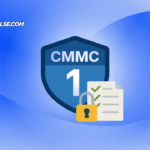Technology has become a critical success factor in various industries.
The importance of technology in the education sector cannot be overstated because it is a requirement in today’s world.
Several initiatives have been launched to encourage parents to pursue education at all levels for their children.
Simultaneously, the government is making bold efforts to develop rules that will assist in expanding the online education market.
Faster deployment, increased digital infrastructure quality, and low-cost internet services across the country will make it easier to employ new educational technologies.
How Is Technology Changing The Education Industry?
Technology is changing the education industry significantly. From project management software to educational video games-everything is available on the internet today.
In fact, you can download these easily from The Pirate Bay too, and give your child the education he deserves.
Let’s take a look at the significant changes technology has introduced in the educational sector:
1: Easy Access Of Study Materials
Education is now available in many villages, towns, and cities due to technological advancements.
There are different modes, such as the internet, that aids in improving academic achievements. If students utilize these broad study materials, they will have no shortage of knowledge.
Apart from that, numerous websites are affiliated with schools, universities, and institutions that actively assist students in obtaining their education online.
2: Lower Cost To Study Abroad
Enrolling in prestigious institutions and universities is not always feasible for everyone.
Internet connectivity and online educational presence are offered at minimal cost to a wide range of individuals.
Companies will even provide students with online education certifications for attending virtual lectures from seasoned experts at foreign universities.
As the shared resource economy grows, the demand for classrooms and space, which incur expensive expenses, decreases.
3: Better Content Delivery
The conventional method of information distribution and learning method, i.e., paper and printing, can be abandoned now.
The utilization of cloud storage can help you save money on textbook printing costs.
When the material is delivered digitally, it is unnecessary to reprint it to keep it up to date.
This means that material created once may be reused and upgraded without any trouble or additional cost.
4: Automation
Administrative and process-driven roles in the education sector can be automated using technology.
In the same industry, there has been talking about machines replacing humans in certain occupations in the same industry, but we believe this will only increase uniformity, efficiency, and effectiveness.
While technology cannot replace many aspects of education, such as the human touch, warmth, and empathy, it can automate the learning paradigm, the main goal here.
5: Restructuring The Classroom
Education technology is transforming how teachers educate, and students learn. Instead of the typical brick-and-mortar classroom, we’ve seen the growth of “flipped classrooms.”
It uses a combination of online and offline education, with students watching video lectures at home and doing “homework” in class.
It provides an opportunity to escape from dull mug-up sessions and provides real-world learning experiences, bridging the gap between what is taught in the classrooms and the real-world business requirements.
6: Skill Training
The expansion of online courses has ensured that reskilling possibilities are available for people with significant expertise and exposure.
Coaching technology skills, acquiring new abilities, and increasing work skills are just a few courses that may help individuals become more productive.
Companies that produce education courses ensure that students of all ages receive the necessary education for advancement, therefore contributing to the nation’s progress.
7: More Educational opportunities
As people get more options through internet commerce, education becomes increasingly important in advancing their careers.
Access to education via mobile devices and laptops makes it very simple for all of us to obtain education and enroll in many courses that are not readily available in the market.
The internet e-commerce hype has assisted small shops in learning simple procedures to move their operations online.
Final Thoughts
We now see that technological advancements have made a notable change in the education industry; especially in the post-pandemic world.
Digital education continued to be the next wave of learning, from chalk-and-blackboard lectures and aided learning approaches to sophisticated instructional technologies.
Encouragement of AR and VR has allowed students to have complete and unfettered access to minute information.
Henceforth, if you want to know more, keep us posted in the comment section below.












